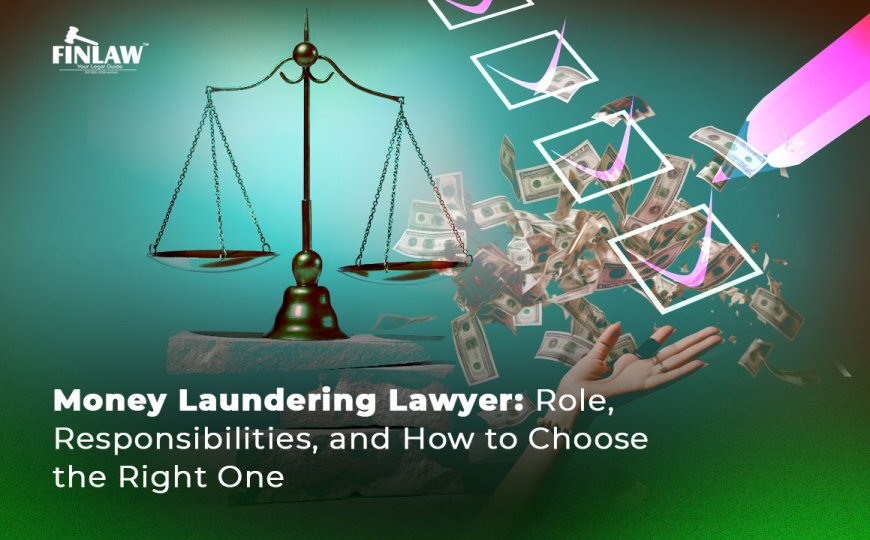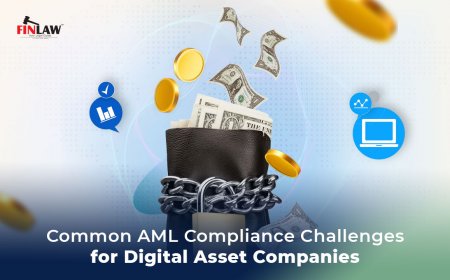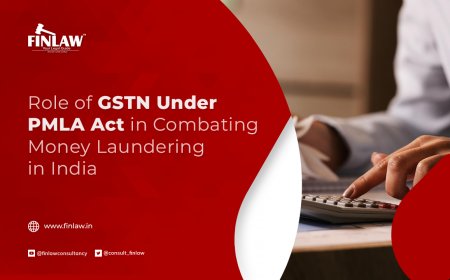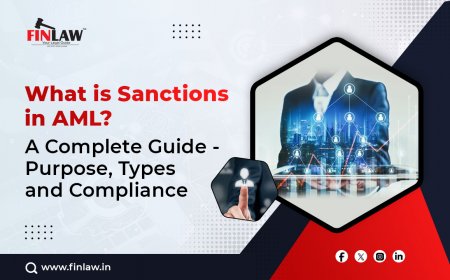Money Laundering Lawyer: Role, Responsibilities, and How to Choose the Right One
Need a money laundering lawyer in India? Discover their roles, legal process under PMLA, fees, and tips to choose the right legal expert for your case.

In today's highly regulated financial environment, being accused of money laundering is a serious legal challenge. Whether you’re a fintech founder, a corporate executive, or a high-net-worth individual, facing an investigation by agencies like the Enforcement Directorate (ED) or Financial Intelligence Unit (FIU-India) can be overwhelming. This is where a specialized money laundering lawyer becomes indispensable.
India has intensified its fight against money laundering with stricter laws, higher scrutiny on financial transactions, and closer cooperation with international regulatory bodies. If you are involved in high-value financial dealings, offshore investments, cryptocurrency trading, or any sector vulnerable to financial crime allegations, knowing how to hire the right money laundering lawyer in India is crucial.
Understanding Money Laundering in India
Money laundering refers to the process of disguising the proceeds of illegal activities as legitimate funds. The objective is to make “dirty” money appear “clean” by funneling it through complex financial systems.
In India, the Prevention of Money Laundering Act (PMLA), 2002, governs such offences. PMLA was enacted to combat the increasing menace of money laundering, particularly from drug trafficking, terrorism financing, corruption, and tax evasion.
Three Stages of Money Laundering
-
Placement – Introduction of illicit money into the financial system.
-
Layering – Using a series of transactions to disguise the origin.
-
Integration – Returning the laundered money to the economy as legitimate income.
Under Indian law, both individuals and corporations can be prosecuted for money laundering.
Role of a Money Laundering Lawyer
A money laundering lawyer in India plays a specialized role that combines elements of criminal defence, financial regulation, and compliance advisory. Their job isn’t just about representing clients in court—it’s about providing strategic counsel to navigate a multi-layered and often intimidating legal landscape.
1. Defending Against PMLA Charges
Once you are under investigation, the ED can attach properties, freeze bank accounts, and initiate prosecution. A seasoned lawyer helps challenge ED actions under Sections 5 and 8 of the PMLA.
2. Handling Summons and Search Notices
Lawyers provide immediate guidance on how to respond to ED or FIU summons, ensuring your rights are protected during search, seizure, or custodial interrogation.
3. Bail Applications in Money Laundering Cases
Securing bail in money laundering cases is complex due to Section 45 of the PMLA. A money laundering lawyer drafts precise anticipatory or regular bail applications and argues for relief based on merit.
4. Compliance Advisory for Businesses
Companies in sectors like:
-
Banking and Finance
-
Real Estate
-
Crypto and Blockchain
-
Gaming and Casinos
-
NBFCs
...are at higher risk of scrutiny. Lawyers assist in:
-
Drafting Anti-Money Laundering (AML) programs
-
Staff training
-
Risk assessments
-
FIU India registration
5. Filing Appeals and Review Petitions
If you're unhappy with an ED attachment order or a PMLA Adjudicating Authority decision, a money laundering lawyer helps file appeals before:
-
Appellate Tribunal under PMLA
-
High Courts
-
Supreme Court of India
Legal Framework Governing Money Laundering in India
The primary legal instruments involved are:
-
Prevention of Money Laundering Act, 2002 (PMLA)
-
Foreign Exchange Management Act (FEMA)
-
Income Tax Act, 1961
-
Benami Transactions (Prohibition) Act
-
Indian Penal Code (IPC) – Sections relating to fraud and forgery
-
Companies Act, 2013 – Section 447 on fraud
Each of these has overlapping jurisdiction, making it important to consult a lawyer who understands multi-agency litigation.
Real-Life Examples and Trends
-
Nirav Modi Case – A high-profile fraud where money laundering charges were framed under PMLA after massive banking fraud. ED attached properties worth over ₹1,000 crore.
-
Satyendar Jain Case – Delhi’s Health Minister was arrested by ED under PMLA for suspected money laundering via shell companies.
-
Cryptocurrency Exchanges in India – In 2023-24, multiple crypto exchanges including WazirX and CoinSwitch were investigated by ED for AML non-compliance.
These cases underline why having an experienced money laundering lawyer is not just a defensive strategy—it’s a business necessity.
How to Choose the Best Money Laundering Lawyer in India
Not all criminal lawyers are equipped to deal with financial crime cases. Here’s what to look for in a qualified money laundering lawyer:
Experience With Enforcement Directorate (ED) Cases
Choose someone with a track record of handling ED investigations, attachment orders, and court representations under PMLA.
Domain Expertise
If your case involves international transactions, cryptocurrency, or offshore accounts, ensure the lawyer has relevant technical understanding.
Strategic Thinking
Money laundering cases require layered strategy—dealing with property seizure, avoiding custodial interrogation, negotiating bail, and managing media pressure.
PAN India Practice
Given the centralised nature of ED and FIU, your lawyer should be licensed to appear before tribunals and courts across jurisdictions—Delhi, Mumbai, Bengaluru, and Kolkata.
Ethics and Confidentiality
Ensure the lawyer values professional ethics. Confidentiality is key in white-collar cases that could affect reputation, business relationships, and market standing.
Cost of Hiring a Money Laundering Lawyer
Fees can vary depending on experience, case complexity, and geography. Here's a ballpark estimate:
|
Legal Service |
Estimated Fee (INR) |
|
Preliminary Consultation |
₹5,000 – ₹15,000 |
|
Legal Opinion on ED Notice |
₹25,000 – ₹75,000 |
|
Bail Application (Trial Court) |
₹75,000 – ₹2,50,000 |
|
Trial Representation |
₹3,00,000 – ₹12,00,000+ |
|
High Court/Supreme Court Appeal |
₹5,00,000 upwards |
Always get a written fee quote and engagement letter.
Top Cities to Find Reputed Money Laundering Lawyers in India
|
City |
Why It's Important |
|
Delhi |
Seat of ED HQ, Appellate Tribunal under PMLA, Supreme Court |
|
Mumbai |
Major hub for financial crimes, ED Zonal Office, High Court |
|
Bengaluru |
Tech and crypto-related AML cases |
|
Hyderabad |
Active startup ecosystem, NBFC and gaming-related issues |
|
Chennai/Kolkata |
Increasing white-collar crime litigations |
You can also find credible lawyers on platforms like Bar Council of India, LiveLaw, and LinkedIn, or by referrals from law firms dealing in economic offences.
The Future of Anti-Money Laundering (AML) Law in India
India is continuously aligning with global standards on AML compliance. Here’s what to expect:
-
Stricter AML guidelines for fintech and crypto firms
-
Increased FIU-IND reporting for designated businesses
-
Greater cross-border cooperation via FATF & INTERPOL
-
Digital tracking of suspicious financial flows via AI-based surveillance
Hiring a lawyer early in the investigation phase can help you comply better, avoid legal violations, and reduce reputational damage.
FAQs
Q1. Is money laundering a cognizable offence in India?
Yes. It is a cognizable and non-bailable offence under PMLA.
Q2. What is a "proceeds of crime" under PMLA?
Any property derived from a scheduled offence, directly or indirectly, is considered proceeds of crime and can be attached or confiscated by ED.
Q3. Can anticipatory bail be granted in money laundering cases?
Yes, but it's difficult due to strict bail conditions under Section 45. Legal strategy is crucial.
Q4. Can companies be prosecuted for money laundering?
Yes. Under Section 70 of PMLA, companies, their directors, and key officers can be held liable.
Q5. How long does an ED case typically last?
Anywhere between 1–3 years depending on the scale of the investigation, foreign involvement, and trial delays.
Final Words
Facing a money laundering investigation is no longer a rare occurrence—it’s a growing reality in India’s modern financial ecosystem. From crypto exchanges to real estate investors, anyone can come under the radar. The right money laundering lawyer will not only defend you in court but also help build a robust compliance strategy to protect your business and personal assets.
Be proactive, stay informed, and partner with legal counsel who understands both law and finance.
What's Your Reaction?



















